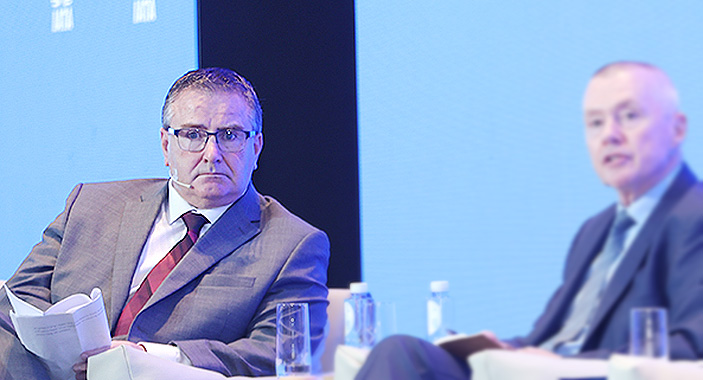
IATA WSOC Oct 15, 2025: News Coverage
Global airline association launches lithium-ion batteries awareness campaign
October 16th 2025
The International Air Transport Association (IATA) has unveiled ‘Travel Smart with Lithium Batteries’, a global safety campaign of seven simple rules for passengers carrying mobile phones, laptops, power banks and other lithium-powered devices safely onboard. Read More » The campaign will run on IATA’s website and social channels and also be available as white-label assets for airlines, airports and other partners across the travel ecosystem. Part of the campaign is an animated video, screened at the Xiamen IATA World Safety and Operations Conference (WSOC) on October 15. "Lithium-powered devices are safe when handled properly, but they can pose a risk if damaged or packed incorrectly. As more travelers fly with these devices, our Travel Smart with Lithium Batteries campaign will help airlines educate their passengers about the simple rules they must keep in mind when traveling with their electronic devices," IATA senior vice president, operations, safety and security, Nick Careen, told WSOC delegates.
More than 70% of Asia-Pacific passengers unaware their devices are powered by lithium-ion batteries
More than two-thirds of the region’s air travellers do not know they are carrying potentially high-risk products when they fly, a UL Standards & Engagement study said. Its results were presented to delegates on the second day of the International Air Transport Association World Safety and Operations Conference in Xiamen. The survey was conducted from late February until late March this year after the Air Busan accident. It shows awareness tracks are low for high-risk products, Thermal Runaway Incident Program (TRIP) director of UL Standards & Engagement, Matthew Pasha, said. Around 71% of respondents did not know the products they use are powered by lithium-ion batteries. Only 40% of respondents knew portable chargers/power banks are powered by these potentially dangerous batteries. In the case of individual rechargeable spare batteries, the awareness level was even lower at 28%. This lack of knowledge led to potentially dangerous actions. Approximately 32% of those surveyed admitted they placed their power banks in the overhead compartment when they took their flights and 22% said they placed the power banks in checked luggage. According to UL Standards & Engagement, globally Li-Ion battery incidents during flights happen on average twice a week. Nearly one in five incidents result in significant passenger disruption including diverted landings, evacuation or return to the gate. Vapes and power banks top the list of devices behind thermal runaway air passenger incidents. Because the average passenger brings four rechargeable devices on board, the highest chance for a risky situation may happen on board large aircraft. On board the CRJ-440, one of the smallest jets, taking 44 passengers and three crew, there will be an average of 188 devices. Aboard the largest jet, the A380 that can transport 525 passengers and 20 crew members, there will be, on average, 2,180 devices powered by rechargeable batteries. UL Standards & Engagement said thermal runaway incidents continue to trend upwards and have increased 15% from 2019, when the data collection started, and 2024.
Hundreds of industry professionals participated in expert industry sessions at IATA safety summit
During the second day of the IATA World Safety and Operations Conference in Xiamen this week more than 800 professionals attended expert sessions across four tracks - Safety, Cabin Operations, Flight Operations and Crisis Management, allowing delegates to exchange experiences and specific sector knowledge. Xiamen Airlines, the host carrier of the conference, said the sessions gave representatives from Mainland carriers the opportunity to build a communication bridge between the industry in China and the rest of the world and also to detail knowledge in advanced Chinese industry standards fields such as machine learning and artificial intelligence (AI) in aircraft engineering and maintenance.